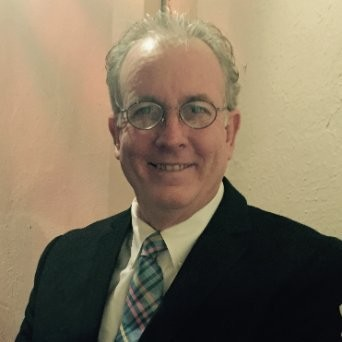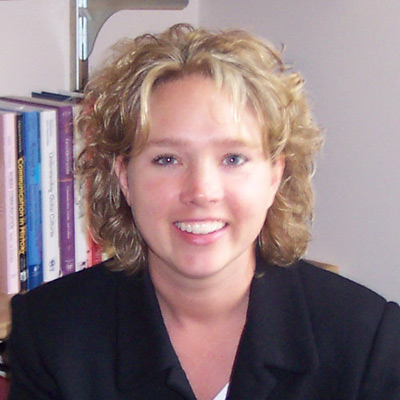Huddy-Gunn Graduate Paper Award
Conference Details:
Through education, research, and collaboration, the National Association of Communication Centers (NACC) supports the advancement of communication centers on college and university campuses across the country. Our annual conference brings together center directors, coaches, support staff, and students to network, share experiences, and innovate.
Focus/Intent of the Award:
The Huddy-Gunn Graduate Paper Award honors outstanding communication center research by a graduate student. Submissions should be original research that investigates a topic from an empirical or theoretical perspective and meets the criteria of the call for conference submissions. The paper should focus on applying, challenging, modifying and/or developing a new theory. Research using quantitative and qualitative methods is welcomed provided that the methodology is clear and rigorous. Findings are not required to be generalizable yet findings that can be shared with and meaningful to a variety of communication centers is appreciated.
All communication center topics are welcome.
Coordinator: Zack Sowder
Eligibility:
To be eligible for this award, the submitting author must be:
- Enrolled in a graduate degree seeking program at the time of submission or within one academic year prior to submission.
- Registered for and attend the conference to present the work (at least one author).
To be eligible for this award, all research must be:
- Centered on a communication center theory or topic
- Original work of the author/authors
- At the time of submission, not previously published or accepted for publication, and not presented or in review for presentation at another conference.
- Not a major thesis or dissertation project (coursework papers are accepted)
- Completed by at least one graduate student without assistance from any faculty or staff member (if a graduate student works with an undergraduate, the work must be entered into the graduate competition; if a graduate student works with a faculty/staff member, the work must be entered into the faculty/staff competition)
- Submitted on or before all deadlines during the process
- A student whose paper is accepted for presentation may not submit another paper from their graduate work for this competitive paper competition but may submit additional papers for consideration on non-competitive panels.
Instructions for Authors:
Authors may submit their research in two-stages: abstracts and completed papers.
Abstracts:
- The abstract must be e-mailed as a Word attachment to the Call Coordinator using the subject line: “Huddy-Gunn Paper Competition” by February 10th.
- The abstract is due to the Call Coordinator by the date listed in the call for papers.
- Abstracts must be formatted based on a recognized writing style (APA, MLA, Chicago, etc.) with all source material properly attributed.
- Abstracts should be free of author or institutional identifiers. Please change or omit any identifying information for the purposes of an unbiased evaluation in both the text and citations. Please refer to NCA’s guidelines for preparing an unidentifiable copy for review: https://www.natcom.org/convention-events/convention-resources/convention-resource-library/preparing-unidentifiable-copy
- Submit in a separate document, along with the abstract, an author information document that includes the author(s) name(s), email(s), phone(s), and institution(s).
- If your abstract is accepted as a conference submission, you are expected to register for the conference and present your manuscript at the NACC conference, regardless of whether or not you win the award.
Completed Papers:
- The complete paper must be e-mailed as a Word attachment to the Call Coordinator using the subject line: “Huddy-Gunn Paper Competition” by March 1st
- A completed paper is due to the Competition Coordinator by the date listed in the call for papers.
- Papers should be original research that investigates a topic from an empirical or theoretical perspective
- Papers should have a maximum length of 5000 words (not including reference pages or appendices)
- Papers must be formatted based on a recognized writing style (APA, MLA, Chicago, etc.) with all source material properly attributed
- Papers should be free of author or institutional identifiers--please change or omit any identifying information for the purposes of an unbiased evaluation in both the text and citations. Information that in any way identifies the author or her/his affiliation may disqualify the proposal from consideration.
- Submit in a separate document, along with the paper,, an author information document that includes the author(s) name(s), email(s), phone(s), academic position (first year masters student, second year doctoral student), and institution(s).
Selection Process:
The recipient will be chosen by a committee of NACC members/Communication scholars that do not belong to the home institution of paper authors. The NCA Communication Centers Section Student Advocate coordinates this effort.
About Huddy-Gunn:

Bill Huddy

Amanda Gunn
When speaking centers were in their infancy, although they often had a senior faculty member as chief promoter, they quite often had graduate students doing a great deal of the “heavy lifting.” Such was the case for Bill Huddy, then a graduate student at the University of Colorado, Colorado Springs, and Amanda Gunn, then a graduate student at the University of North Carolina, Greensboro. At their institutions, they both work tirelessly to create model centers.
With the professional ambitions typical of graduate students, they wanted to see greater recognition for speaking center work, especially recognition from the National Communication Association (NCA). They also felt that NCA recognition would facilitate both the exchange of ideas among those working at fledgling centers and networking among them. Believing that there was no place in the existing NCA structure to facilitate this sharing and networking, they spearheaded the attempt to secure NCA approval for a separate NCA section devoted to just speaking or communication centers.
They played a major role in drafting a proposal for a new NCA section, and Amanda appeared before the Legislative Council (LC) to both answer questions about it and argue for it. Speaking/communication centers were fairly new on the scene: thus, many in the LC did not know what such centers were and what their mission might be. So, a large part of what Bill and Amanda did, through their proposal and Amanda’s “defense” of it, was to educate those at the helm of NCA about centers.
Both Bill and Amanda have moved on, both from graduate school and from direct involvement with speaking centers, although both remain strong supporters. The important work they did that all now involved with speaking centers have benefitted from was done as graduate students. The work was not tied to their graduate curriculum; the work was not related to their dissertation projects. It was something they did above and beyond the norm because they felt centers could play a major role in the education their institutions were offering.
That Bill and Amanda so served speaking centers as graduate students makes it quite appropriate that the NACC award for outstanding paper by a graduate student be named in their honor.
Previous Winners
2024: Amy Ellefson, University of Southern Mississippi, Rubaiya Zannat, University of Southern
2023: Mercy Faleyimu, James Madison UniversityMississippi, Mphatso Kaufulu, Creighton University
2021 Briana M. Stewart, George Mason University
2020 Winner: Keviele McBride, The University of North Carolina at Greensboro
2019 Winner: Vivian Niestrom and Jeannine Lane, Grand Valley State University
2018 Winner: Skye Gregory-Hatch, Grand Valley State University
2017 Winner: Carley Reynolds Young & Mohamed Ismail, The University of Southern Mississippi
2016 Winner: Mohamed Ismail, The University of Southern Mississippi
2015 Winner: Leanna Smithberger, James Madison University
2014 Winners: Carl Brown & Nicole Magee, The University of Southern Mississippi
2013 Winner: Carl Brown, The University of Southern Mississippi
2012 Winner: Hannah Rachal, University of Southern Mississippi
2011 Winner: Alyssa Davis, University of North Carolina Greensboro
2009 Winner: William Bryant, University of North Carolina Greensboro
2008 Winners: Marcie Hureau, University of Colorado – Colorado Springs and Hema Yarragunta, University of North Carolina at Greensboro
2007 Winner: Kira Zimmerman, University of Colorado – Colorado Springs